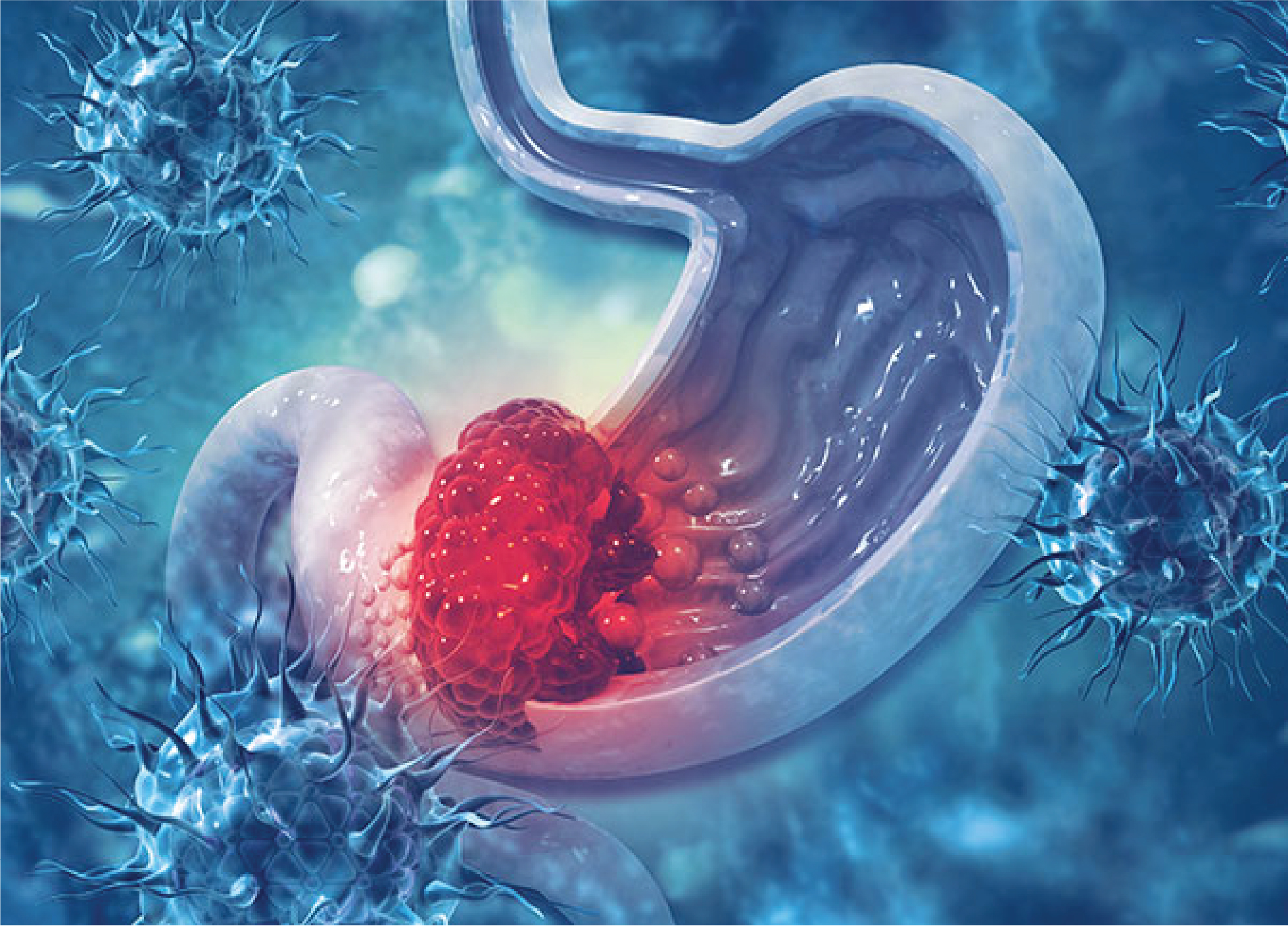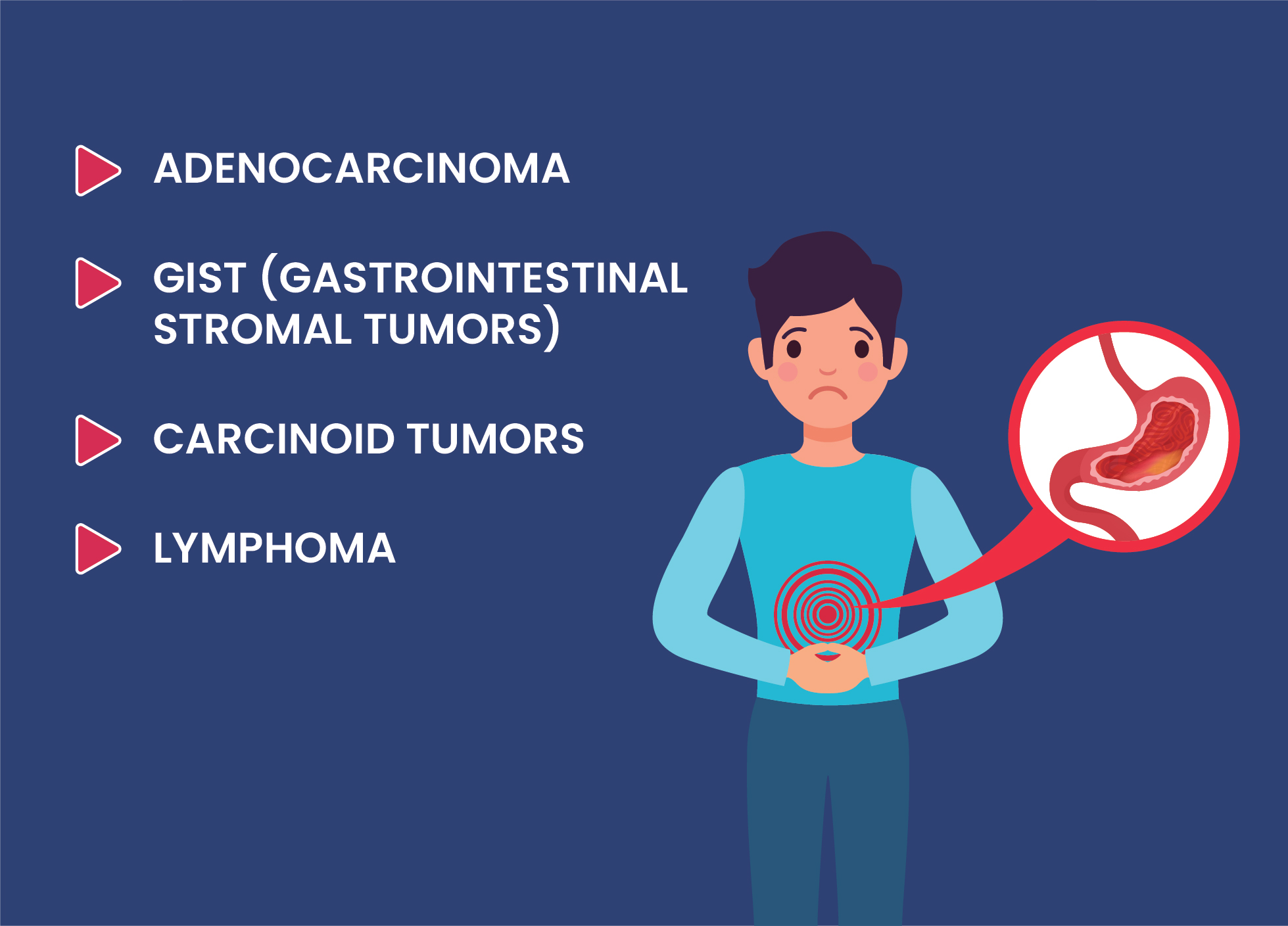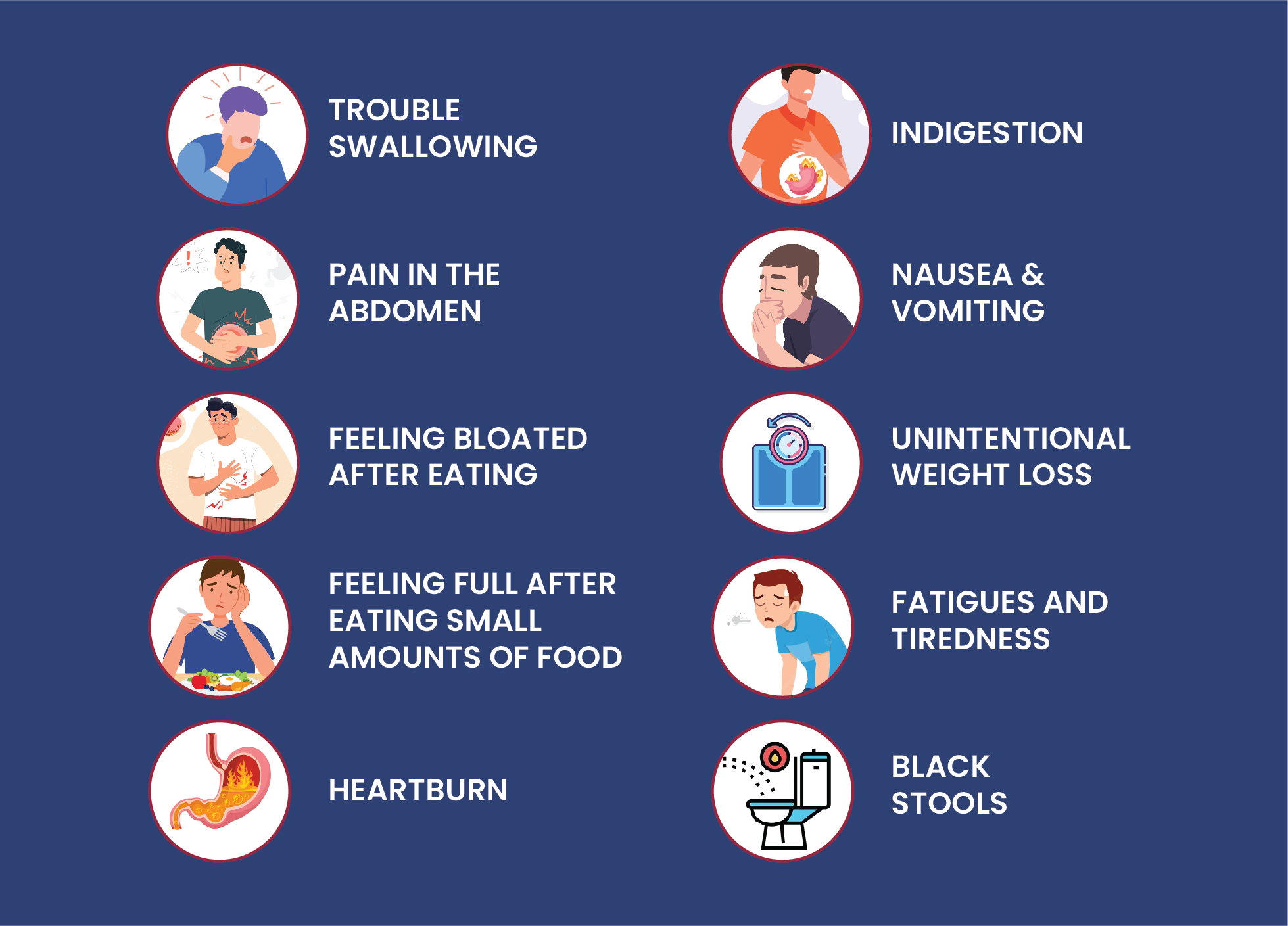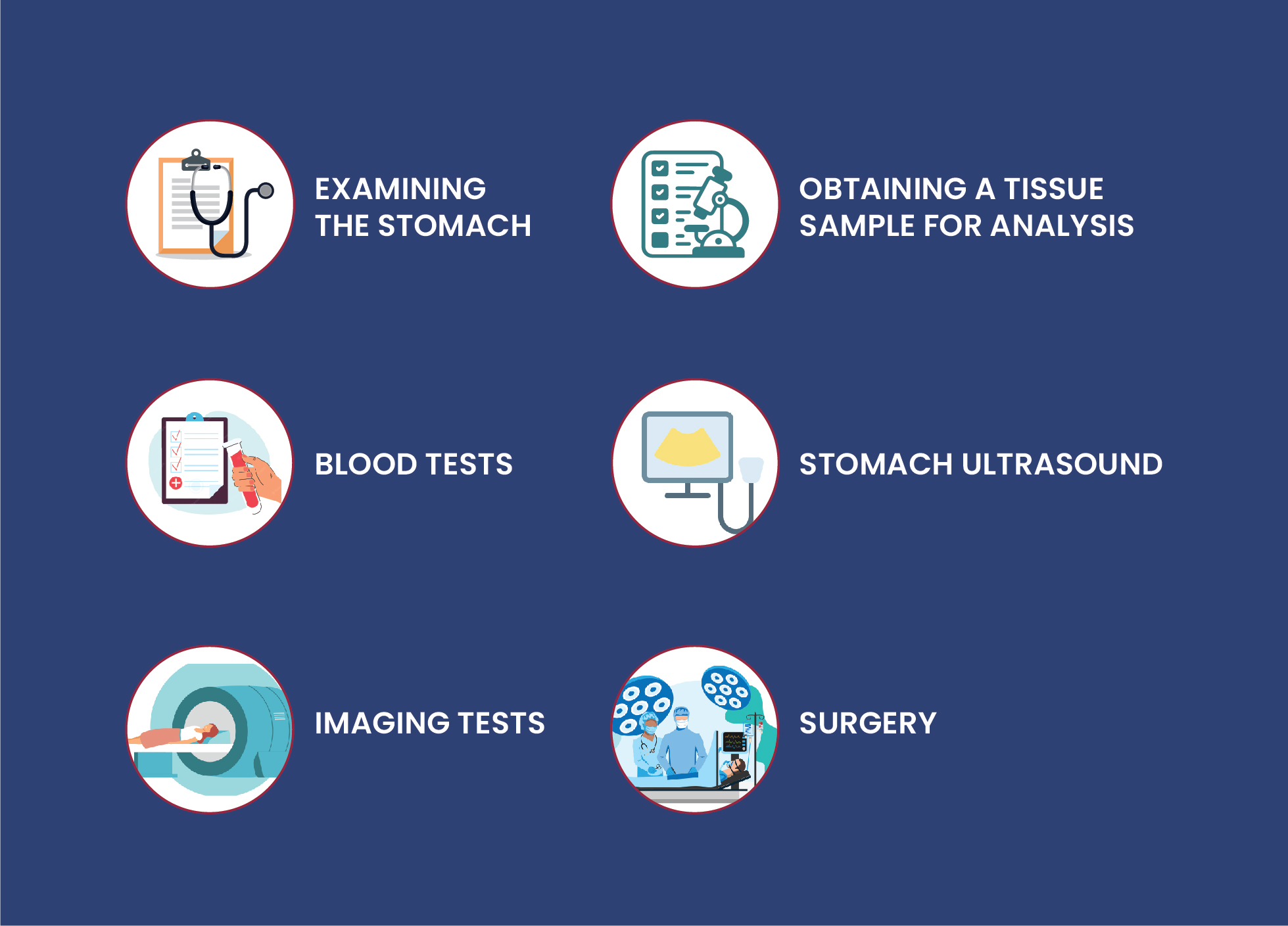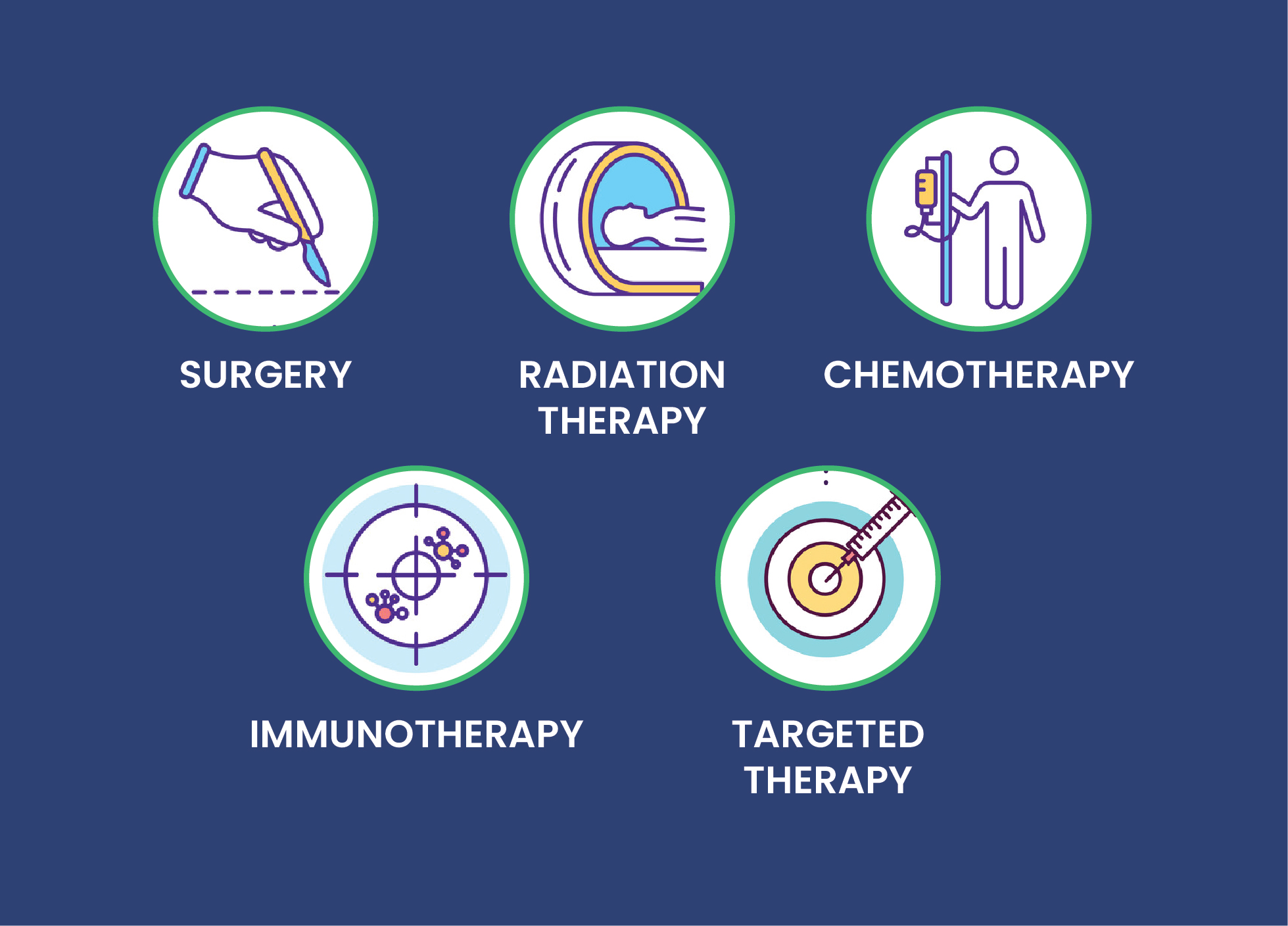Stomach Cancer
A cellular growth that starts in the stomach is called gastric cancer, also referred to as stomach cancer. The stomach is situated in the upper middle of the abdomen, just behind the ribs.
The stomach aids in the breaking down and digestion of food. Stomach cancer can occur in any part of the stomach. In majority of cases around the globe, stomach cancer affects the primary region of the stomach. It is known as stomach.
Stomach cancer is more likely to start at the gastroesophageal junction. The stomach connects to the large tube that transports the food you swallow at this juncture. The esophagus is the name of the tract that carrier’s food to the stomach.
Treatment is more likely to be successful if the disease is contained to the stomach. The prognosis is good for people with small gastric tumors. Many people expect to feel better. Stomach cancers are usually found when the illness is advanced and a cure is less likely. When stomach cancer invades the walls of the stomach or spread to other parts of the body, treatment becomes more challenging.
The type of cells that give rise to the stomach cancer determines its type. There are various types of gastric cancer, such as:
- Adenocarcinoma: Stomach cancer that develops from cells that make mucous. This type of gastric cancer is the most prevalent. Most cancers that start in the stomach are adenocarcinomas.
- Carcinoid Tumors: These malignant tumors are derived from neuroendocrine cells. Neuroendocrine cells are found throughout the body in various places. They carry out some of the functions of nerve cells and some of the functions of cells that make hormones. Carcinoid tumors are a type of neuroendocrine tumor.
- GIST (Gastrointestinal Stromal Tumors): GIST starts in specialized nerve cells that are found in the stomach wall and other digestive systems. It is a type of soft tissue tumor.
- Lymphoma: Lymphoma is a cancer that develops in immune system cells. Pathogens are combated by the body’s defense system. Lymphoma may rarely start in the stomach if the body send immune system cells there. This could happen if the body is trying to fight off an illness. This could happen if the body is trying to fight an illness. Non-lymphoma, the most prevalent form of lymphoma that starts in the stomach is Hodgkin’s.
Signs and Symptoms:
Different signs and symptoms of stomach cancer are:
- Trouble swallowing
- Pain in the abdomen
- Feeling bloated after eating
- Feeling full after eating small amounts of food
- Not feeling hungry when you would expect to be hungry
Signs and Symptoms:
- Heartburn
- Indigestion
- Nausea
- Vomiting
- Unintentional weight loss
- Fatigues and tiredness
- Black stools
Early gastric cancer symptoms don’t always appear. When they do, indigestion and upper abdominal pain may be present as signs. It takes the cancer spreading before the signs start to show. Extreme fatigue, unintentional weight loss, blood vomiting and black stools are signs of stomach cancer in its later phases.
Stomach cancer that has spread to other parts of the body is referred to as metastatic cancer. It displays specific symptoms based on how widely it has expanded. For instance, if cancer moves to the lymph nodes, lumps may be felt through the skin. When cancer spreads to the liver, the skin and eye whites may appear yellow.
If cancer expands there, the stomach may swell up with fluid. The midsection might show bloating.
Diagnosis:
The following tests and methods are used to identify and diagnose stomach cancer:
- Examining the stomach: To check for signs of cancer, your doctor may insert a small camera into your stomach. This procedure is known as Upper endoscopy. In this procedure, a thin tube is inserted into the stomach from the throat which is equipped with a small camera at the other end.
- Obtaining a tissue sample for analysis: If something that looks to be cancer is discovered in your stomach, a biopsy may be necessary. A tissue sample may be obtained during an upper endoscopy by passing specialized instruments through the tube. The sample is sent to the laboratory for analysis.
If you are diagnosed with stomach cancer, you might undergo extra testing to see if the disease has spread. This information is used to grade the cancer. This stage tells your doctor how far along your cancer is and what the outlook is. The stages of gastric cancer are identifies using the following procedures and tests:
- Stomach Ultrasound: A type of imaging technique that uses sound waves to make images. In case of stomach cancer, the images formed can be helpful in determining the growth of the cancer in the stomach walls. A thin tube with a camera on the tip goes down the throat and into the stomach, this is used to get the images. To make the pictures of the stomach, a special ultrasound tool is used.
- Imaging tests: The images created by imaging tests can be used to look for indications that stomach cancer has spread. The images might reveal cancerous cells in neighbouring lymph nodes or other body parts. CT and PET are two possible imaging tests that are done.
- Surgery: At times, it can happen that pictures obtained from the imaging tests are not able to give a clear picture of your cancer, because of which a surgery may be required to look inside the body.
- Blood tests: The diagnosis is not confirmed with the blood tests but it surely gives an idea about your health to the provider. A type of blood test that looks for pieces of cancer cells in the body, is known as circulating tumor DNA test. It is certainly used for patients with stomach cancer.
Treatment
The severity and location of the cancer within the stomach determines the available treatments. The general health and the preferences of the patient are taken into consideration while developing a treatment strategy. Surgery, chemotherapy, radiation therapy, targeted therapy, immunotherapy and palliative care are all forms of treatment for stomach cancer.
-
Surgery:
The main aim of the surgery is to remove all of the cancer. For the stomach cancer that is smaller in size, surgery might be the first treatment option.
The operations used to treat stomach cancer are:
- Removing small cancers from the stomach lining.
- Removing part of the stomach
- Removing the entire stomach
- Removing lymph nodes to look for cancer
-
Chemotherapy:
It is a type of treatment that uses chemicals/drugs to destroy cancer cells. Two types of chemotherapy that are used include:
- Chemotherapy that travel through your entire body: It is also known as systematic chemotherapy because the medicines travel through your entire body, executing cancer cells. The medicine can either be administered as a pill or via a vein directly.
- Chemotherapy via abdomen (especially in the belly): It is also known as Hyperthermic Intraperitoneal Chemotherapy (HIPEC) and it is usually done immediately after surgery. Once the stomach cancer is removed by the surgeon, the chemotherapeutic drugs are directly administered into the belly. To make these drugs more effective, they are heated. It is left in the place for specific amount of time and drained later.
- Radiation Therapy: High-powered energy beams are used in radiation treatment to destroy cancer cells. X-rays, protons or other sources are responsible for beam. The patient lays on the table while receiving the radiation therapy with the help of machine that administers the radiation treatment to specific areas of your body. Chemotherapy and radiation therapy are often administered concurrently. This can be referred to as “ChemoRadiation”.
- Targeted Therapy: Targeted therapies utilize drugs that target particular chemicals sound in cancer cells. Such type of therapies can destroy cancer cells by blocking these chemicals. Targeted therapy is often used in combination with systematic chemotherapy.
- Immunotherapy: A type of medical procedure that works with the body’s immune system to help it fight cancer cells. Cancer cells evade the immune system in order to live. Immunotherapy aids in the detection and destruction of cancer cells by immune system cells.
